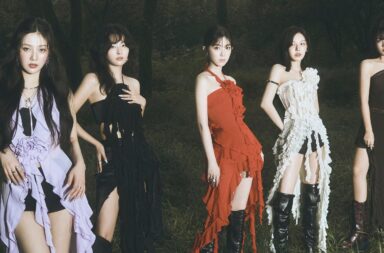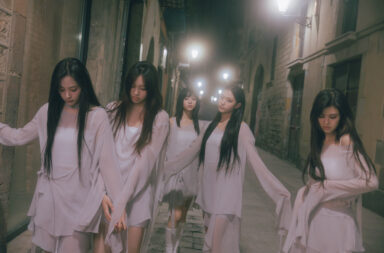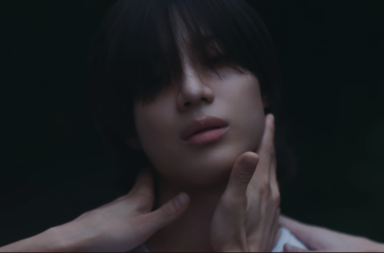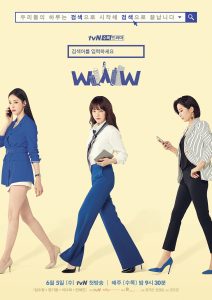
In 2019, old trends continued and new trends were started. The move towards multiple seasons for dramas is continuing with Netflix at the forefront of it all, while webtoon adaptations and foreign remakes are still very popular in Dramaland. Most of the major screenwriters like Kim Eun-sook took the year off, but we did get the return of Kim Eun-hee and the Hong Sisters.
2019 was also defined by the rise of the female-centric dramas that showcase more multifaceted female characters. Furthermore, there was the return of the political drama and the trend of shows interested in the country’s education system. Finally and perhaps most notably, Netflix is making a space for itself within the industry with their first original drama. Kabejja and Rimi discuss these topics and their favourite shows of the year.
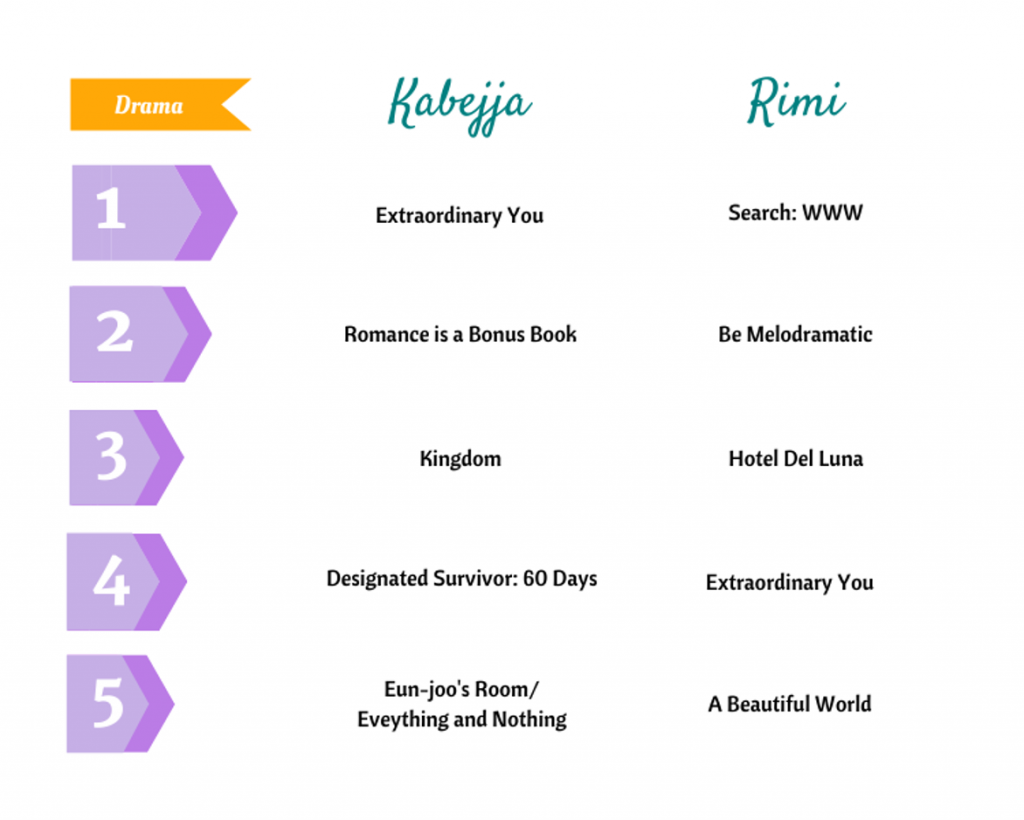
Rimi: Clearly, our tastes are worlds apart! The only drama we have in common is Extraordinary You – and I may know why. A sense of magic permeated the show. It had a strong opening, and was carried by a talented young cast that successfully endeared the characters to viewers.
The only reason it is at number 4 on my list is because the plot derailed in the second half. The first half set us up for a conflict with the Writer, but in the second, we got conflict with Baek Kyung instead. The story did move towards a logical end, but the struggle to save Dan-oh’s life did not feel satisfactory, since it turns out she would simply be alive again in the next manhwa.
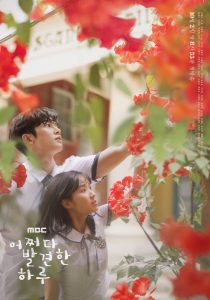
In my opinion, the show was strongest when being led by Kim Hye-yoon, who is a phenomenal actress already; and lost steam when it handed over the reins to the boys once Dan-oh (understandably) grew fearful after Haru’s disappearance. In fact, plot, writing and female characters often come together to determine which dramas are my favorites, and I think my list this year reflects that.
What made you place it at number 1, Kabejja? What do you look for in dramas?
Kabejja: Honestly, Extraordinary You had numerous flaws. However, it still remains an original, witty, swoon-worthy, romantic but surprisingly moving delight of a show. I read the show primarily as a touching, dreamy love story that Dan-oh was creating for herself, and there has been no other show this year that I found as romantic and magical as this one. Also, it played with and critiqued both high-school and rom-com tropes with a sharp, clever eye for detail. My favourite example has to be the way that every school class was somehow connected to romance.
Admittedly, Extraordinary You suits my personal biases. My list is deeply personal and highly subjective in all ways, but in general, I want dramas made with a lot of love, care, and thought. I need well-written heroines too, and this was a great year for female-centric dramas. Your top two choices seem to reflect this as well.
I struggled with Search: WWW‘s directing, among other things. Why did it work so well for you?
Rimi: You’re not the only one that struggled with the directing (that weird lens flare?) in Search: WWW. The central romance between Ta-mi (Im Soo-jung) and Mo-gan (Jang Ki-young) was also disappointing. But what elevates it to the very top of my list is the reversal of gender roles. I think of it as the K-drama equivalent of the French short film, Oppressed Majority.
The show takes your usual workplace drama and gives all the meaty roles to women. It does this outside the workplace as well. The leaders, the cut-throat decision makers, those involved in chase scenes and more are all women. Many of the usual romantic tropes are also given to women. There is less variety in roles available to “older” women, and I love that this show defies that norm. I also personally came to admire the leading ladies. I could believe they were real (except for Scarlett) and hope to be half as bold in the coming years.
Romance is a Bonus Book was another workplace drama. I disliked how the daughter was used as background to the female lead, and never made an appearance. What brings it to your list?
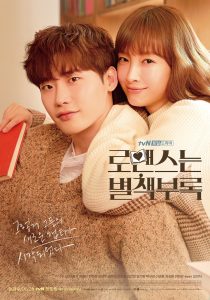
Kabejja: Frankly, I didn’t care about that at all really, as the show was focused on the female lead solely as a returnee employee, and featured another mum juggling work and family responsibilities. I have written about why I loved the show before but I would like to share more.
Firstly, Romance is a Bonus Book has an unabashed love for what it loves: books, writers, its main characters, and homes we create that overflows off the screen and to us. I still feel that rings true — there was a genuine care for books and an understanding of their power that held the show together. Secondly, the writer provided a range of fully fleshed-out, interesting characters that were very memorable. It was a perfect comfort food, just sincere in the best ways.
I still have mixed feelings about Be Melodramatic. I loved the first episode, but I found certain storylines lacking, and the show dragged for me. There is a lot to love about it, though; what were the best things about it for you?
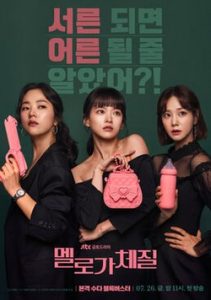
Rimi: That’s surprising! I was very satisfied with how the storylines played out, and loved how normally the show treated therapy, homosexuality, single motherhood, female desire and more. Be Melodramatic was unusually accepting of individuality in dramaland. Its deadpan brand of humour had me in splits, and relatable lines made me cry. The OST deserves a shout out as well!
But very frankly, I fell in love with the underlying idea that “everything will be alright when you turn 30” (the title of Jin-joo’s drama). I’m 29 years old, and the past decade has been full of uncertainty.. I too have been cheering myself on with those very words. The show felt very much like a coming-of-age movie, except the characters are 30, and I think many urban millennials will similarly relate.
I’m so glad you included Kingdom on your list. I nearly did too, but ultimately left it out for the sole reason that we’ve been left hanging for a year now (*shakes fist at Netflix*). What did you like about it?
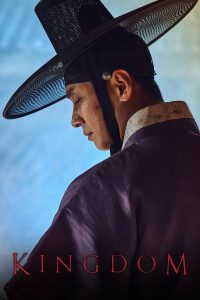
Kabejja: Kingdom is by no means the best work of the writer, Kim Eun-hee — that would probably be Signal — but I was impressed by it in many ways. The best things about it for me were the cinematic, thrilling zombie chases, stunning cinematography, and its biting social critique of governments and capitalism.
While I am frustrated about the move towards multiple seasons which Netflix is catalysing, Netflix does have the cash to really push K-dramas forward. Kingdom was done on a scale that would not been seen at other networks this year. It’s a sign of what is to come for K-dramas, and it’s really not a bad thing at all.
I didn’t watch Hotel Del Luna since dramas written by the Hong sisters have never been my thing. With them, you either love their dramas or hate them. What drew you to Hotel Del Luna?
Rimi: With Hotel Del Luna, there was a lot to love. In part, the magic lay in the fact that the show’s very premise was based on death. It is naturally a sad topic, and has a lot of room to move viewers. I also enjoyed watching Eastern ideas such as reincarnation come alive (onscreen). The show was about grieving and letting go. The writing stayed consistent to the end, with little hints to the ending hidden in the props, sets, dialogue, weekly ghost sub-plots, and the actions of the characters, from the very start.
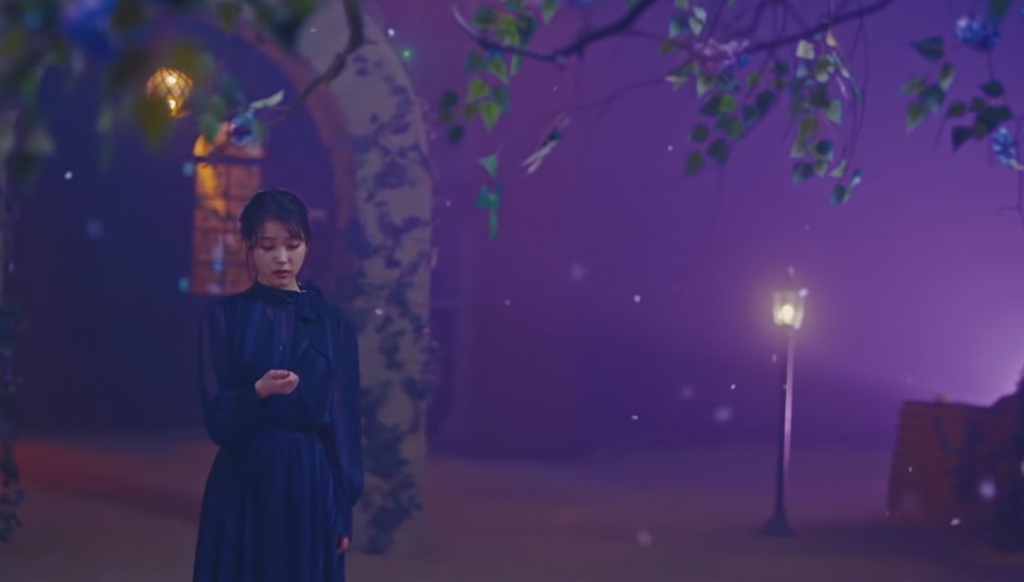
Lastly, there’s IU’s compelling performance as the 1000+ year old Jang Man-wol, her amazing outfits, the beautiful set of the Hotel and all that comedy despite the lingering presence of death. Everything came together to create an enchanting world. It was a fun watch, and I’d take more seasons of the Hotel’s staff dealing with their dead guests. The Hong Sisters did a great job this time!
I only watched the start of Designated Survivor: 60 days, and I have to say it seemed the exact opposite of Hotel Del Luna — surviving at all costs, instead of letting go.
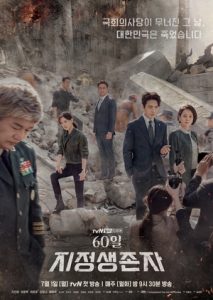
Kabejja: Designated Survivor: 60 Days is a really good remake, one that fully adapted the original premise to suit its new Korean context. Beyond that, it was a strikingly ambitious show, taking risks when so many shows this year have been playing far too safe. Some of those risks worked, while some did not, and watching the show was both frustrating and brilliantly exciting. While it tried to tackle a lot, at its core, it was an engrossing tale about the struggle between the needs of the country and personal desires. This struggle was portrayed memorably by a brilliant cast, particularly Ji Jin-Hee, Kang Han-na and a perfectly snarky and charming Son Suk-ku. It was a show that began with a nightmare but ended with hope, a hope that felt truly hard-earned.
I gave up on your final choice early on because I struggle with shows that I find too sentimental. Education though was a major theme of this year. The highly successful Sky Castle, Class of Lies, Moment at Eighteen and the currently airing Black Dog are just a few examples. Why was A Beautiful World your favourite?
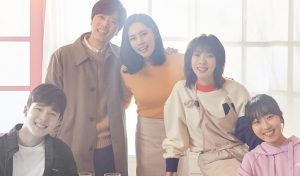
Rimi: I also almost gave up on A Beautiful World in its early episodes, but really only continued to watch it because I’d committed myself to reviewing it and similar dramas, for Seoulbeats during my traineeship. But I’m glad I continued it, because it picks up around the half-way mark. Once Seon-ho’s mom In-ha starts to see through his friends’ lies, the show turns into a bit of a thriller. It retains strong moral undertones, and there is much commentary about good parenting and what values adults must impart to children, but watching Seon-ho’s family unravel what happened the night he fell from the rooftop is very satisfying. Cho Yeo-jung’s performance as Oh Joon-suk’s (the bully’s) conflicted mother who makes a terrible decision at the very start of the show is, for me, the stand out performance of dramaland this year.
I haven’t even heard of the last dramas on your list! Tell us more.
Kabejja: The final place on my list is a tie between Eun-joo’s Room (which only got English subtitles late this year) and Everything and Nothing. Both shows were shorter offerings than the usual K-drama, but were so well-made and rich that they really deserve a place. Since 2017, I have found that the short drama space is packed with artful, daring works, and these are just two examples.
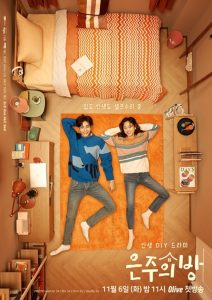
Eun-joo’s Room was a sensitive, heartfelt inquiry into modern, millennial life through the eyes of a highly relatable heroine, Eun-joo. The show covered social media, self-care, the pressures of capitalism, female friendship, housing and more with a deft, grounded touch. It was interested and invested in paying attention to the various different areas of its heroine’s life in a way that I have not seen this year. Ryu Hye-young’s naturalistic, organic performance reminded me why I have missed her since Reply 1988. Also, I want to give a mini shoutout to Kim Sun-young who is brilliant in this show as she was in every show she was in this year.
Everything and Nothing was a provoking rumination on teenage disillusionment. While the plot leans towards disturbing (which I admittedly liked here), the show truly captured the confusing, complicated feelings of youths having to adapt to the adult world. The show was raw and intense in a way that felt so true about the teenage experience. The less said about the plot, the better, but this is a tightly constructed show with no filler. At the end, when everything clicks together, it is powerful.
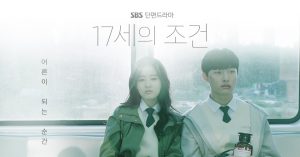
Overall, our lists reflect the brilliant year that it has been for K-dramas. There were just so many excellent performances, so much outstanding writing and production this year. It has also been a year of change with the influence of Netflix and many new scriptwriters finding success. 2020 looks to provide a fresh new landscape of dramas that both of us are very excited for.
(YouTube. Images via JTBC, MBC, Netflix, Olive TV, tvN.)
